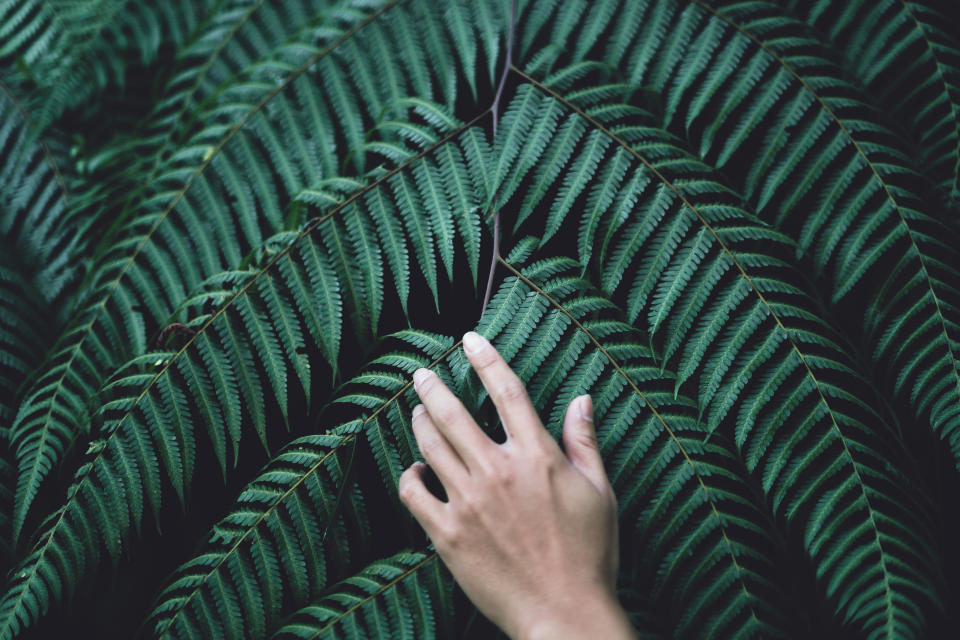Meditation isn't for everyone. Here are 4 other ways to destress
The traditional practice of meditation – seated, eyes closed, focused on your breathing – does not appeal to everyone. Some people may not have the patience, others may not have the necessary focus. But the health benefits of meditation are especially important now during the coronavirus pandemic, when there is widespread anxiety and uncertainty.
Dr. Shefali Tsabary, a clinical psychologist and author, tells Yahoo Life, “Meditation brings us back into the present, makes us see the abundance of the present moment and immediately our heart rate slows down, our cortisol begins to come down, our dopamine goes up.”
But for those who don’t like to meditate, there are ways to use mindful and meditative practices in other activities to achieve the same effect.
1. Nature walks
As stay-at-home orders are still in effect in many parts of the U.S., any time spent (safely) outside is likely to feel invigorating. And if you’re seeking a way to destress outside, Tsabary recommends going for a nature walk, even if it’s only for 10 minutes. But don’t rush through it, instead, “do it silently, listening to the sounds of the birds and the trees,” she says.
Even being among nature can serve as a helpful, and healthy, reminder of a brighter future. “Nature is so powerful as a healing agent because we immediately realized that there is life, that things are OK, that nature will continue,” she says.

2. Music and reading
To some extent, everyone reads and listens to music. But are you rereading the same sentence three times? And are you playing music just as background noise? Try doing both activities with a greater sense of intent, says Tsabary.
“Pay attention to the music, read the words with presence,” she says. “Just take a few moments to acknowledge the present moment.”
3. Journaling
It might be good to keep a journal during this time just as a snapshot of an unparalleled time in history. But if that’s not your thing, try doing it as a way to destress. Putting your emotions and feelings on a page every day can have a cathartic effect.
“Spend five minutes just writing what's coming up for you,” says Tsabary. “Find that bridge to your inner world so that you can build this robust inner landscape so that when the outer landscape looks messy, it's okay.”
4. Treasure small acts
Even the smallest, most regular acts can have meditative benefits if done more purposefully. Relishing each moment – tying your shoes, talking to a loved one, touching your child’s cheek – gives it a greater sense of gravity, especially with so much chaos in the world.
“If only we could see this as a portal for gratitude, then everything could surprise us and be a portal for abundance,” says Tsabary. “Let's use this as a powerful moment to wake up and to be so grateful.”
For the latest coronavirus news and updates, follow along at https://news.yahoo.com/coronavirus. According to experts, people over 60 and those who are immunocompromised continue to be the most at risk. If you have questions, please reference the CDC’s and WHO’s resource guides.
How to maintain your physical and mental health during the pandemic
Taking care of a loved one with COVID-19? Here’s how to stay healthy
Q&A with Dr. Kavita Patel: How to keep your family safe and maintain your mental health
Read more from Yahoo Life
'Everyone deserves a chance to fly': Family puts on sky-high performances of 'Wicked' for neighbors
Party invites, handshakes, personal space: What’s the etiquette as social distancing rules ease up?
Want daily lifestyle and wellness news delivered to your inbox? Sign up here for Yahoo Life’s newsletter.


